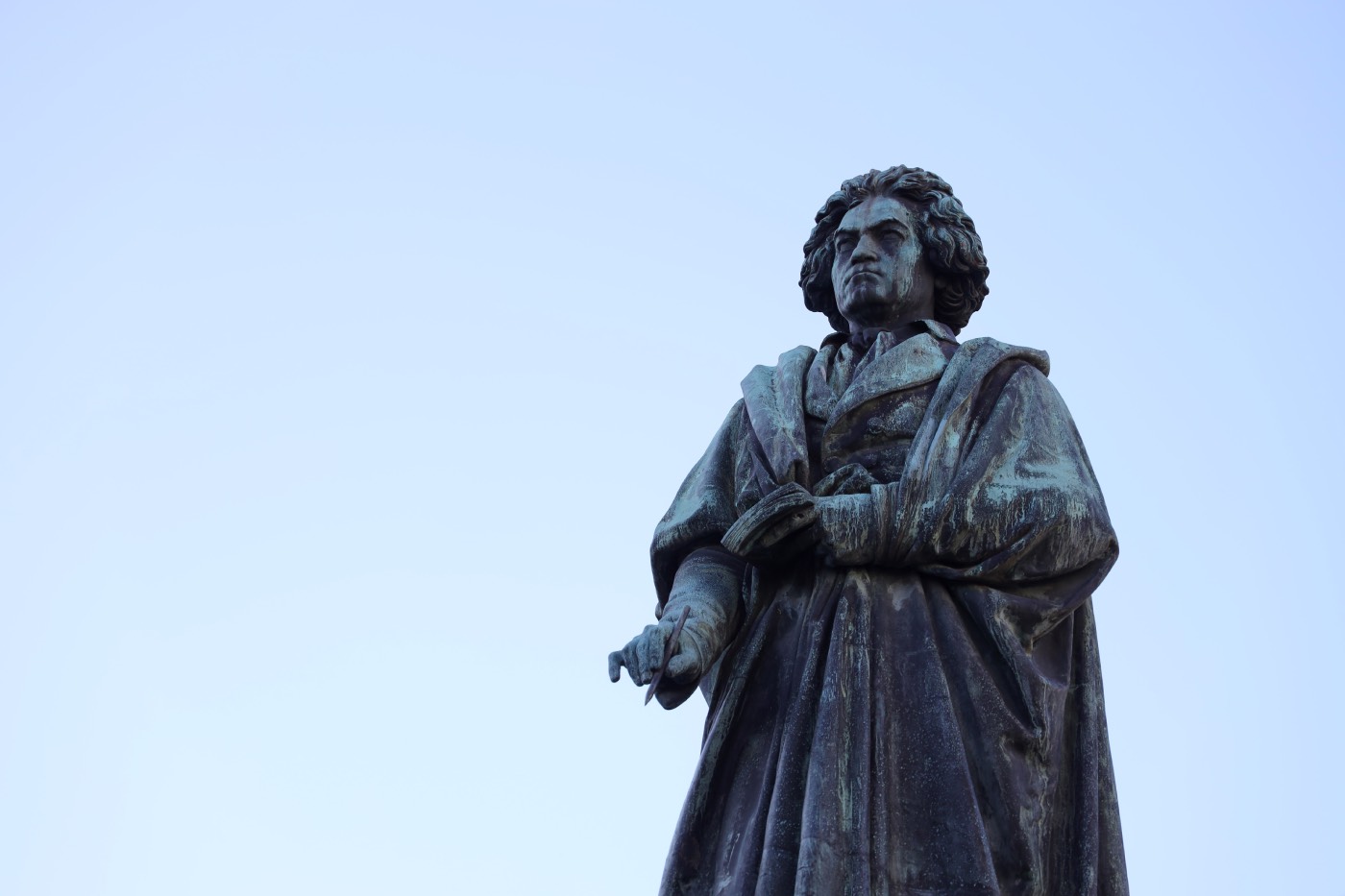Beethoven’s unfinished symphony finished by AI
Musicians, historians and scientists join forces to ‘create something that Beethoven himself might have written’

A free daily email with the biggest news stories of the day – and the best features from TheWeek.com
You are now subscribed
Your newsletter sign-up was successful
One of history’s most famous composers will deliver a new work from beyond the grave next week - with a little help from a team of modern-day composers, musicologists and computer scientists.
Beethoven began what would have been his tenth symphony in the final years of his life. But poor health prevented him from completing more than a few musical sketches before his death at the age of 56, in 1827.
“These fragments have now been turned into a complete piece of music using artificial intelligence technology,” said the Classic FM website.
The Week
Escape your echo chamber. Get the facts behind the news, plus analysis from multiple perspectives.

Sign up for The Week's Free Newsletters
From our morning news briefing to a weekly Good News Newsletter, get the best of The Week delivered directly to your inbox.
From our morning news briefing to a weekly Good News Newsletter, get the best of The Week delivered directly to your inbox.
The lead computer scientist on the project, Professor Ahmed Elgammal, explained how his team at Rutgers University-based startup Playform AI “taught a machine both Beethoven’s entire body of work and his creative process”. They then applied that analysis to the beginnings of his final symphony “to create something that Beethoven himself might have written”, wrote Elgammal in an article on The Conversation.
Austrian composer Walter Werzowa was also enlisted to put together a new kind of composition that would integrate what Beethoven left behind with the AI-generated material. A computational music expert transcribed Beethoven’s sketches and processed his entire body of work to ensure the AI was accurately trained.
And a musicologist helped to decipher and transcribe Beethoven’s sketches for the symphony to try to understand his intentions.
The resulting piece of music will premiere on 9 October at the Telekom Forum in Bonn, Beethoven’s birthplace. A recording will be released on the same day.
A free daily email with the biggest news stories of the day – and the best features from TheWeek.com
Elgammal does not expect everyone to approve. “There are those who will say that the arts should be off-limits from AI, and that AI has no business trying to replicate the human creative process,” he conceded.
But there are some early signs of acceptance. “The first test was to see if an audience of experts could determine where Beethoven’s phrases ended and where the AI extrapolation began,” said Classic FM. “When they couldn’t, the team knew they were on the right track.”
His tenth symphony will now join an exclusive group of AI-assisted compositions. In 2019, Schubert’s final symphony was also completed by software, from a Huawei smartphone.
Chas Newkey-Burden has been part of The Week Digital team for more than a decade and a journalist for 25 years, starting out on the irreverent football weekly 90 Minutes, before moving to lifestyle magazines Loaded and Attitude. He was a columnist for The Big Issue and landed a world exclusive with David Beckham that became the weekly magazine’s bestselling issue. He now writes regularly for The Guardian, The Telegraph, The Independent, Metro, FourFourTwo and the i new site. He is also the author of a number of non-fiction books.
-
 Local elections 2026: where are they and who is expected to win?
Local elections 2026: where are they and who is expected to win?The Explainer Labour is braced for heavy losses and U-turn on postponing some council elections hasn’t helped the party’s prospects
-
 6 of the world’s most accessible destinations
6 of the world’s most accessible destinationsThe Week Recommends Experience all of Berlin, Singapore and Sydney
-
 How the FCC’s ‘equal time’ rule works
How the FCC’s ‘equal time’ rule worksIn the Spotlight The law is at the heart of the Colbert-CBS conflict
-
 Claude Code: Anthropic’s wildly popular AI coding app
Claude Code: Anthropic’s wildly popular AI coding appThe Explainer Engineers and noncoders alike are helping the app go viral
-
 Will regulators put a stop to Grok’s deepfake porn images of real people?
Will regulators put a stop to Grok’s deepfake porn images of real people?Today’s Big Question Users command AI chatbot to undress pictures of women and children
-
 Most data centers are being built in the wrong climate
Most data centers are being built in the wrong climateThe explainer Data centers require substantial water and energy. But certain locations are more strained than others, mainly due to rising temperatures.
-
 The dark side of how kids are using AI
The dark side of how kids are using AIUnder the Radar Chatbots have become places where children ‘talk about violence, explore romantic or sexual roleplay, and seek advice when no adult is watching’
-
 Why 2025 was a pivotal year for AI
Why 2025 was a pivotal year for AITalking Point The ‘hype’ and ‘hopes’ around artificial intelligence are ‘like nothing the world has seen before’
-
 AI griefbots create a computerized afterlife
AI griefbots create a computerized afterlifeUnder the Radar Some say the machines help people mourn; others are skeptical
-
 The robot revolution
The robot revolutionFeature Advances in tech and AI are producing android machine workers. What will that mean for humans?
-
 Separating the real from the fake: tips for spotting AI slop
Separating the real from the fake: tips for spotting AI slopThe Week Recommends Advanced AI may have made slop videos harder to spot, but experts say it’s still possible to detect them